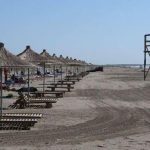Change font size:
TIRANA, April 11, 2023 – With Albania’s government losing its final appeal to reverse a €120-million penalty in the Francesco Becchetti affair case earlier this month, Tirana is mulling exiting the jurisdiction of the international arbitration court that issued the ruling, according to Prime Minister Edi Rama. The tribunal organized under the jurisdiction of the International Centre for Settlement of Investment Disputes (ICSID), which is connected to the World Bank, had ruled against Albania and ordered compensation for what it deemed was the illegal expropriation of Mr. Becchetti media company, Agonset, in violation of the bilateral investment treaty between Italy…










